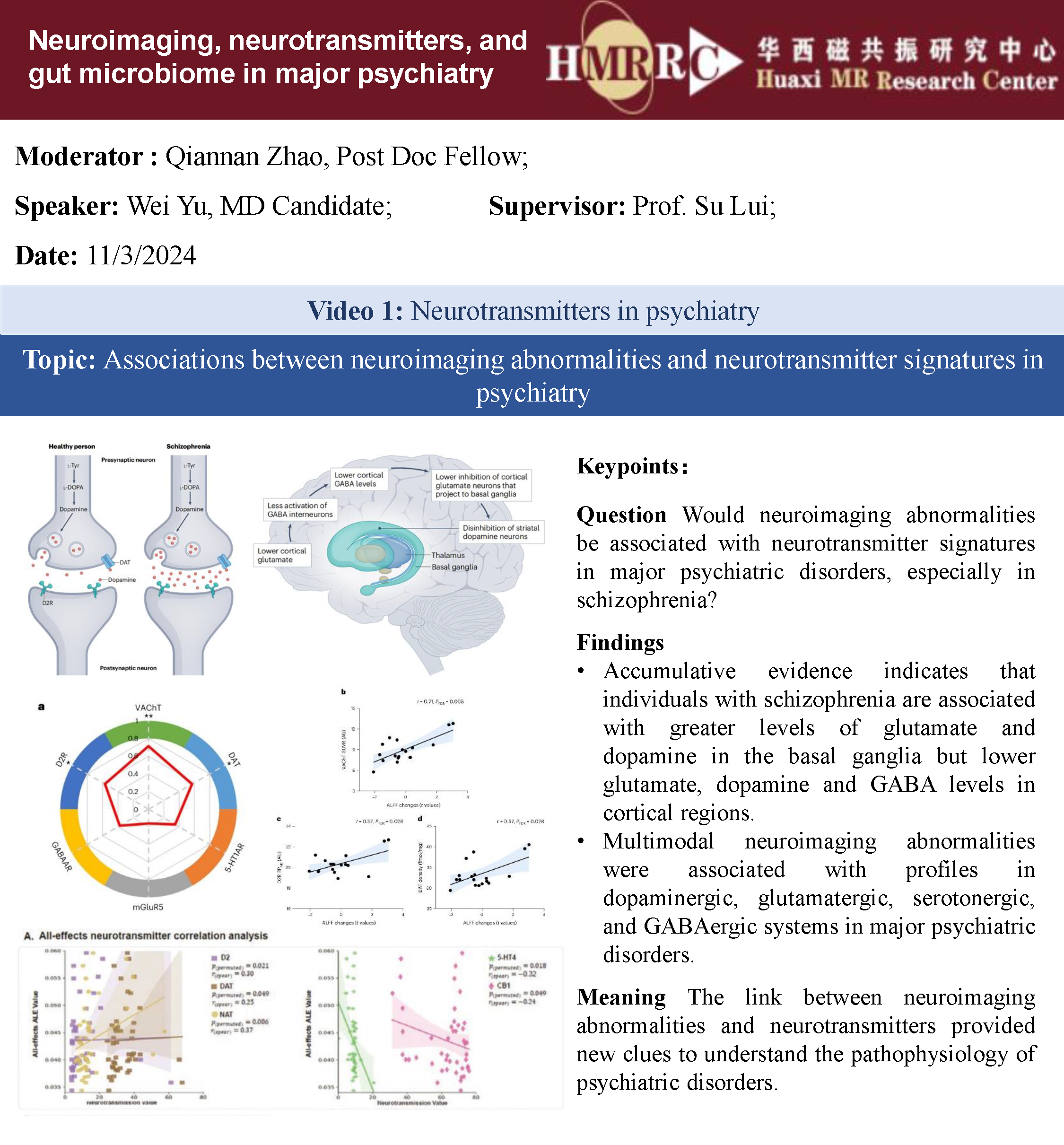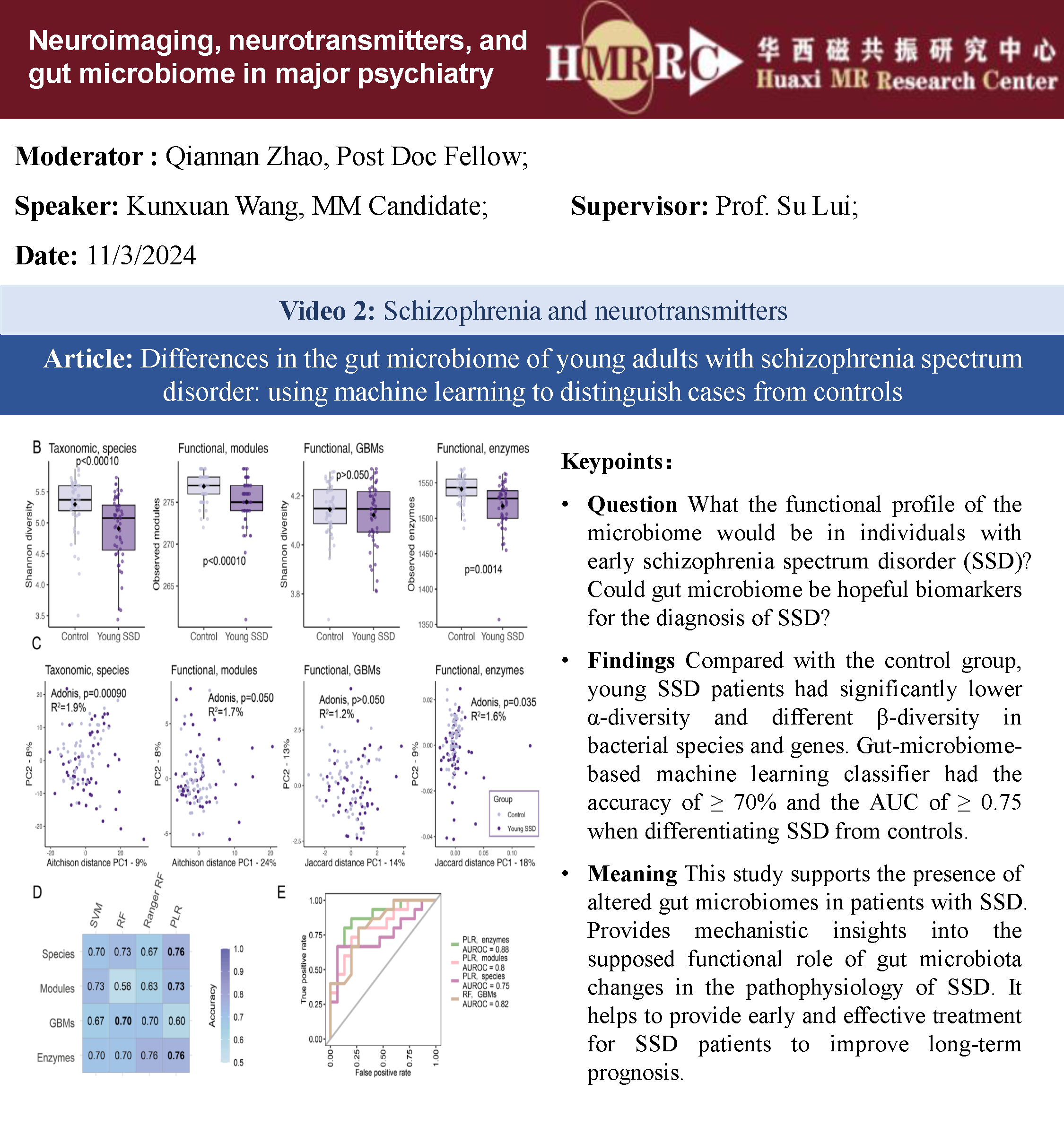
Neuroimaging, neurotransmitters, and gut microbiome in major psychiatry.
Topic: Neuroimaging, neurotransmitters, and gut microbiome in major psychiatry.
Moderator: Qiannan Zhao, Post.doc
Speaker 1: Wei Yu, MD Candidate Supervisor: Prof. Su Lui
Speaker 2: Kunxuan Wang, MM Candidate Supervisor: Prof. Su Lui
Date: 11/03/2024, 14:00
Location: The lab of HMRRC (10011, the 8th Teaching Building)
Speaker 1: Wei Yu, MD Candidate
Title: Associations between neuroimaging abnormalities and neurotransmitter signatures in psychiatry.
Keypoints:
Question: Would neuroimaging abnormalities be associated with neurotransmitter signatures in major psychiatric disorders, especially in schizophrenia?
Findings: 1.Accumulative evidence indicates that individuals with schizophrenia are associated with greater levels of glutamate and dopamine in the basal ganglia but lower glutamate, dopamine and GABA levels in cortical regions. 2. Multimodal neuroimaging abnormalities were associated with profiles in dopaminergic, glutamatergic, serotonergic, and GABAergic systems in major psychiatric disorders.
Meaning: The link between neuroimaging abnormalities and neurotransmitters provided new clues to understand the pathophysiology of psychiatric disorders.

Speaker 2: Kunxuan Wang, MM Candidate
Title: Differences in the gut microbiome of young adults with schizophrenia spectrum disorder: using machine learning to distinguish cases from controls.
Keypoints:
Question: What the functional profile of the microbiome would be in individuals with early schizophrenia spectrum disorder (SSD)? Could gut microbiome be hopeful biomarkers for the diagnosis of SSD?
Findings: Compared with the control group, young SSD patients had significantly lower α-diversity and different β-diversity in bacterial species and genes. Gut-microbiome-based machine learning classifier had the accuracy of ≥ 70% and the AUC of ≥ 0.75 when differentiating SSD from controls.
Meaning: This study supports the presence of altered gut microbiomes in patients with SSD. Provides mechanistic insights into the supposed functional role of gut microbiota changes in the pathophysiology of SSD. It helps to provide early and effective treatment for SSD patients to improve long-term prognosis.
